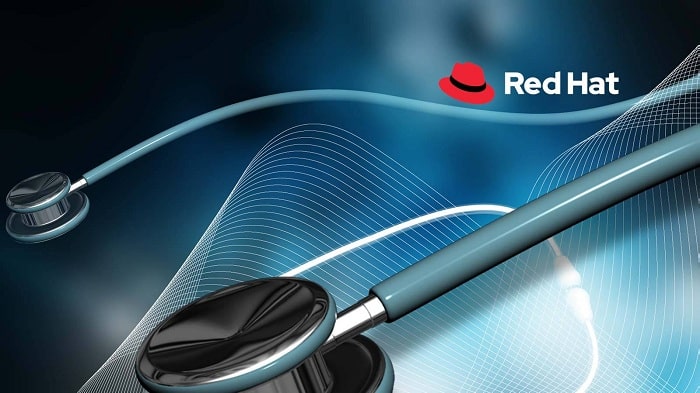DarwinAI, the explainable artificial intelligence (XAI) company, and Red Hat, the world’s leading provider of open source solutions, announced a collaboration to accelerate the deployment of COVID-Net—a suite of deep neural networks for COVID-19 detection and risk stratification via chest radiography—to hospitals and other healthcare facilities. DarwinAI and Red Hat are also leveraging the expertise of a computation research group, the Fetal Neonatal Neuroimaging and Developmental Science Center (FNNDSC) at Boston Children’s Hospital to better focus the software for real world clinical and research use.
Since the launch of COVID-Net by DarwinAI and the University of Waterloo’s Vision and Imaging Processing (VIP) Lab, the project has continued to evolve with assistance, participation and collaboration from researchers and clinicians around the world. The initiative eventually led to a collaboration between DarwinAI and Red Hat, using underlying technology from Boston Children’s, the number one pediatric hospital in the nation.
The goal of this collaboration is to make it easier for clinicians to use COVID-Net in hospitals by means of a web-based graphical user interface (GUI) that sits atop Boston Children’s ChRIS framework using Red Hat OpenShift — the industry’s leading enterprise Kubernetes platform that supports deployments across complex hybrid and multicloud infrastructures.
“Improving clinical care and outcomes through cutting edge computational research is core to the mission of Boston Children’s FNNDSC. Our open source ChRIS platform allows for the rapid development and deployment of novel AI solutions in practically any setting,” said Boston Children’s Scientist Rudolph Pienaar, Ph.D., lead Technical Architect of ChRIS and Assistant Professor in Radiology at Harvard Medical School. “We are thrilled to help deploy COVID-Net on ChRIS with DarwinAI and leverage Red Hat OpenShift. We believe this effort can result in screening many cases at tremendous scale and help focus healthcare where it is most needed as quickly as possible.”
“Our mission is to help people build AI they can trust, and the development of COVID-Net is a topical and timely manifestation of that goal,” said Sheldon Fernandez, DarwinAI’s CEO. “The COVID-Net system is a promising tool, but needs to be coupled with a compelling GUI to be effective — Boston Children’s ChRIS framework and the Red Hat OpenShift platform provides an effective way to get COVID-Net into the hands of health care professionals on the front lines.”
“At Red Hat, we pride ourselves on our open technologies hybrid cloud being used for the greater good,” said Chris Wright, senior vice president and chief technology officer, Red Hat. “COVID-19 impacts us all, and we are proud to have Red Hat OpenShift be an underlying technology in COVID-Net, a platform designed to better help frontline healthcare workers when it comes to understanding this complex disease.”
About COVID-Net
As the first wave of the COVID-19 pandemic took hold, the medical community reported one of the largest bottlenecks in triage and diagnosis was the scarcity and turn around time of the standard RT-PCR viral test. In response, DarwinAI collaborated with researchers at the University of Waterloo’s Vision and Imaging Processing (VIP) Lab to develop COVID-Net as a complementary tool to assist clinicians in rapidly screening for COVID-19 and assessing disease progression and severity.
DarwinAI’s Generative Synthesis platform enabled its team to develop COVID-Net in under a week, and on March 22 it was open-sourced and made publicly available to the research and international clinical community. The COVID-Net initiative has received global support and contribution from around 20 clinical institutes and healthcare providers around the world including Canada, U.S., Spain, India, and Malaysia.



















